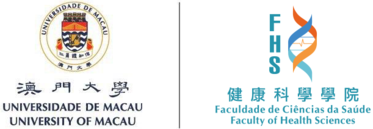聯絡信息

職稱
副教授
辦公室
(地址) E12-3028
/ (電話) +853 8822 4933
實驗室
(地址) E12-1071
/ (電話) +853 8822 9164
團隊辦公室
(地址) E12-1033
/ (電話) +853 8822 2950
諮詢時間
星期一、五 11:30-12:30 PM
| Education | |
| PhD | Department of Chemistry and Biochemistry, University of California San Diego, USA (2011) |
| MSc | Department of Chemistry and Biochemistry, University of California San Diego, USA (2008) |
| BSc | Department of Chemistry and Biochemistry, University of California San Diego, USA (2005) |
| Positions | |
| 08/2022 – Present | Associate Professor, Faculty of Health Sciences, University of Macau |
| 08/2016 – 08/2022 | Assistant Professor, Faculty of Health Sciences, University of Macau |
| 09/2015 – 08/2016 | Visiting Assistant Professor, Faculty of Health Sciences, University of Macau |
| 03/2015 – 08/2015 | Visiting Scientist, Department of Chemistry and Biochemistry, University of California San Diego, USA |
| 09/2012 – 03/2015 | Postdoc Research Fellow, Department of Biological Sciences, Columbia University, New York, USA |
| 07/2011 – 09/2012 | Postdoc Research Fellow, Department of Chemistry and Biochemistry, University of California San Diego, USA |
| Research Interests |
| In this laboratory we use our knowledge and experience in the area of biochemistry, structural biology, cellular and molecular biology to study the functions and mechanisms of important molecules focusing on their biological functions. The major focus of the current research involves understanding the signal transduction mediated by the nuclear factor kappaB (NF-kB) and IkB proteins. The mammalian Rel/NF-kB family of transcription factors plays a critical role in diverse physiological processes including the immune response, inflammation, cell proliferation and survival. A wide variety of signals activate NF-kB driven gene expression through different NF-kB signaling pathways in a stimulus- and cell type-dependent manner. Due to the diverse regulatory mechanisms acting on NF-kB, the signal dependent activation of NF-kB remains a challenging area of research. Using both biochemical and structural approaches, we will determine how post-translational modifications, e.g. phosphorylation, affect NF-kB:IkB:DNA complex formation, binding specificity, and target gene expression. |
| Representative Publications |
* Co-first author; # Corresponding author
|
| Research Grants | |
| 2023-2026 | PI, Investigation of molecular mechanism of Epstein-Barr virus infection and its translational research (FDCT-NSFC Joint Grant 0089/2022/AFJ) |
| 2019-2023 | PI, Macau Giant Panda Fund: “Giant Panda Dental Clinical Application and Research Project” |
| 2019-2022 | PI, Mechanistic Study of NFkappaB and Oncoprotein Bcl3 in Transcriptional Regulation (FDCT 0104/2019/A2) |
| 2019 | PI, The development of a sustainable cyanobacteria system for endocrine disrupting compounds degradation (FDCT # 0025/2019/PS) |
| 2019-2022 | PI, Investigation of IκB:NF-κB:DNA Ternary Complex (MYRG2018-00093-FHS) |
| 2018-2021 | Co-PI, Human gut microbial β-glucuronidases: genotyping, phenotyping and natural inhibitor screening (MYRG2018-00091-ICMS) |
| 2017 | PI, What can we do in Biochemistry? (FDCT # 025/2017/P) |
| 2017-2019 | PI, Investigation of how the NF-κB signaling family binding to κB modules correlates with target gene transcriptional activity (FDCT 023/2016/A1) |
| 2016-2019 | PI, Structural and Functional Studies of Transcription Factor NF-kB Subunit p52 and Oncoprotein Bcl3 (SRG2016-00084-FHS) |

